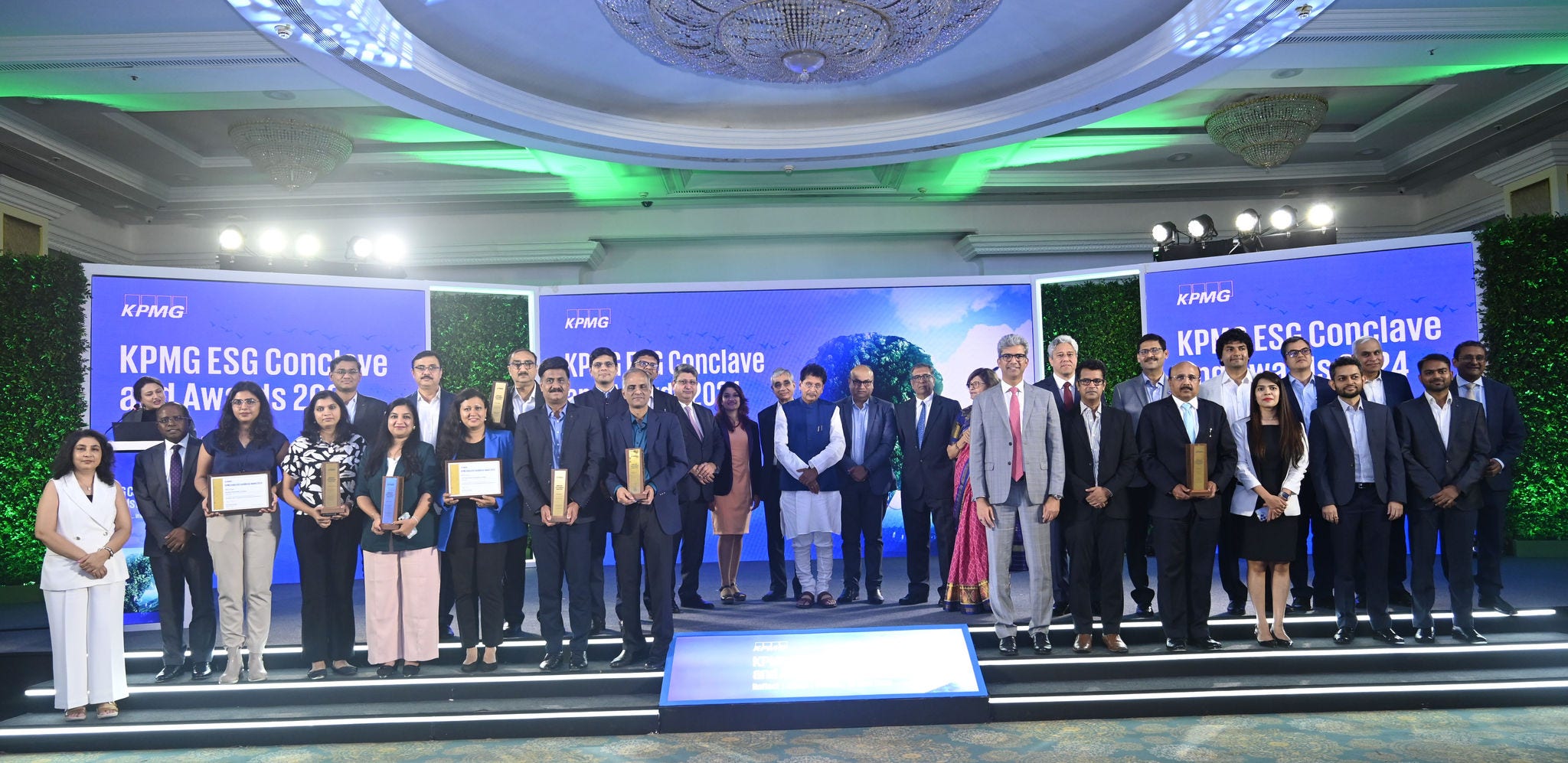Mumbai, 29 August 2024 - The second edition of KPMG in India’s ESG Conclave and Awards 2024 concluded on a high note with a full house turnout, that saw companies being honored for their leadership, innovation, and commitment to sustainable business practices. The event centered on the theme of Green and Inclusive Growth, highlighted that in today’s environment, companies must reflect upon their learnings, adapt to be flexible, and evolve proactively with a forward-looking mindset real time for a sustainable future.
The event saw participation from a plethora of voices representing policymakers, investors ratings agencies, global think tanks, business owners, and business leaders. The participants agreed that , today the urgency to tackle climate change has never been greater. Further growth and sustainability need to go hand in hand, in line with India’s ambitious “ViksitBharat” programme (or Developed India). The deliberations highlighted that for any economy and for leading companies the transition towards a green and inclusive future needs a deeper management of policy, people and underlying technologies. The economy, society, business and environment don’t exist in isolation -they are part of a system that interacts and influences one another.
The discussions and deliberations focussed on opportunities and challenges in making this ESG transition with recognized leaders highlighting cutting edge programs, initiatives and best practices
In the panel discussion titled, ‘Accelerating Green and Inclusive Growth’, panelist’s agreed that increasingly we will see firms getting measured and judged against their stewardship, net-zero plans, carbon footprints, new green products, and leadership in the transition and hence it would be crucial for companies to align strategy and business models with ESG goals, set transparent and measurable targets, design for circularity, promote green supply chains, adopt nature-based solutions, boost skilling and ensure purpose driven business growth.
The second panel discussion titled, ‘Enabling Green and Inclusive Growth - the role of the stakeholder ecosystem’, focused on how governance frameworks, board oversight, and stakeholder engagement, together with regulatory and policy actions can drive sustainable and equitable development in India. It also captured a wide range of viewpoints, from that of board members, policy makers, providers of finance, investors, and technology leaders.
The winners in each of the categories were decided based on a meticulous, data-backed, and objective selection process, and evaluation by an esteemed jury. This was to ensure that deserving achievers and winners were brought to the fore and recognized.
Speaking on the occasion Yezdi Nagporewalla, CEO, KPMG in India said “As corporations, both Indian and global grapple with the challenges posed by climate change, social inequality, and governance challenges, integrating ESG principles into business strategies has become imperative, not only for fostering sustainability, but also for driving long-term value creation. At the very core of the ESG Conclave and Awards is our commitment to working towards aiding sustainable capitalism and green initiatives. The awards are a rightful recognition of the achievements of all the awardees, for having demonstrated clearly, that doing good to the society and the environment also means doing good to your businesses”
Sharing her views, Namrata Rana, National Head of ESG said “ESG principles in Indian boardrooms represents a transformative opportunity for businesses to drive sustainable growth and create long-term value for all stakeholders. By embracing environmental stewardship, social responsibility, and good governance practices, companies can not only mitigate risks and enhance resilience but also seize opportunities for innovation, differentiation, and market leadership. As Indian businesses navigate an increasingly complex and interconnected world, integrating ESG considerations into decision-making processes is essential for building a more sustainable and prosperous future.
In all, 14 awards were given across two major categories across sectors. The winners are:

